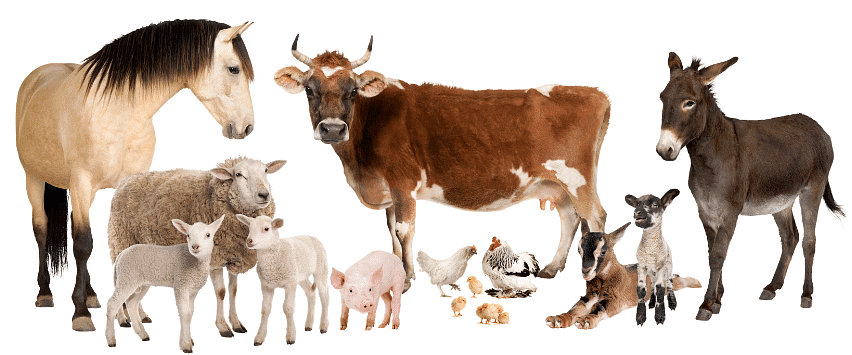Poonam’s Day Out Chapter Notes | EVS for Class 3 PDF Download
Animals
Animals are living things that can move around, eat, breathe, and reproduce. They come in all sorts of shapes and sizes, from tiny insects to huge elephants. There are mammals like cats and dogs, birds like eagles and sparrows, reptiles like snakes and turtles, amphibians like frogs, and lots more! They're all part of the amazing world of nature.

What is Poonam doing?
Poonam is spotting animals.
- Animal spotting is like a fun game where you try to find different kinds of animals in their natural habitat.
- It's like a treasure hunt, but instead of treasure, you're looking for animals! You can do it in forests, parks, or even your own backyard.
- You might spot birds perched on branches, squirrels scampering around, or maybe even a deer or a fox if you're lucky! It's a great way to learn about wildlife and appreciate the beauty of nature.
What is Habitat?
A habitat is like a home for animals and plants. It's a place where they live, find food, water, and shelter, and raise their babies. Habitats can be big, like a forest or a desert, or small, like a pond or a patch of grass.
Animals live in all sorts of habitats, which are like their homes in nature. Here are a few examples:
- Forests: Many animals like deer, bears, and birds make their homes in forests where there are lots of trees and plants.
- Deserts: Some animals, like camels and snakes, live in hot and dry deserts where there isn't much water.
- Oceans: Dolphins, whales, and fish live in the ocean, where there's plenty of water and lots of different creatures.
- Grasslands: Animals like zebras and lions live in grasslands, which are wide open spaces with lots of grass and few trees.
- Mountains: Mountain goats, bears, and eagles are some animals that live high up in the mountains, where it's cold and snowy.
Characteristics of Animals
Animals have all sorts of cool characteristics that help them survive and thrive in their habitats! Here are some of them:
- Flying: Birds, bats, and insects have wings that allow them to fly through the air. Flying helps them escape predators, find food, and migrate to different places.
- Crawling: Many animals like snakes, insects, and worms crawl on the ground using their muscles and special body structures. Crawling helps them move around and explore their environment.
- Walking: Lots of animals, including humans, walk on two or more legs. Walking allows them to travel long distances, hunt for food, and interact with other animals.
- Hopping: Some animals, like kangaroos and rabbits, have strong back legs that allow them to hop instead of walk. Hopping is a great way to move quickly and efficiently across open spaces.
- Wings: Birds, bats, and some insects have wings that they use to fly. Wings are usually made of feathers or membranes and help these animals glide through the air.
- Feet: Animals have different types of feet adapted to their habitats and lifestyles. For example, birds have claws for perching and grasping, while mammals like cats and dogs have paws with pads for walking and running.
- Tails: Tails serve various purposes for different animals. Some animals, like monkeys and cats, use their tails for balance while climbing or jumping. Others, like dogs, use their tails to communicate their emotions. And some animals, like lizards, can even detach their tails as a defense mechanism!
Identifying Animals
Animal identification is the process of recognizing and distinguishing different species of animals. It's like being a detective, trying to figure out which animal you're looking at based on its physical characteristics, behavior, and other clues.
Let’s try to Identify Different animals:

- Dog
- Cat
- Sparrow
- Rabbit
- Squirrel
- Deer
- Goldfish
- Turtle
- Frog
- Butterfly
|
45 videos|182 docs|48 tests
|
FAQs on Poonam’s Day Out Chapter Notes - EVS for Class 3
| 1. What is the main theme of the chapter "Poonam’s Day Out"? |  |
| 2. How does Poonam spend her day in the chapter? |  |
| 3. What lessons does Poonam learn from her interactions with animals in the chapter? |  |
| 4. How does the chapter "Poonam’s Day Out" emphasize the significance of wildlife conservation? |  |
| 5. How does the chapter "Poonam’s Day Out" promote environmental awareness among readers? |  |





















